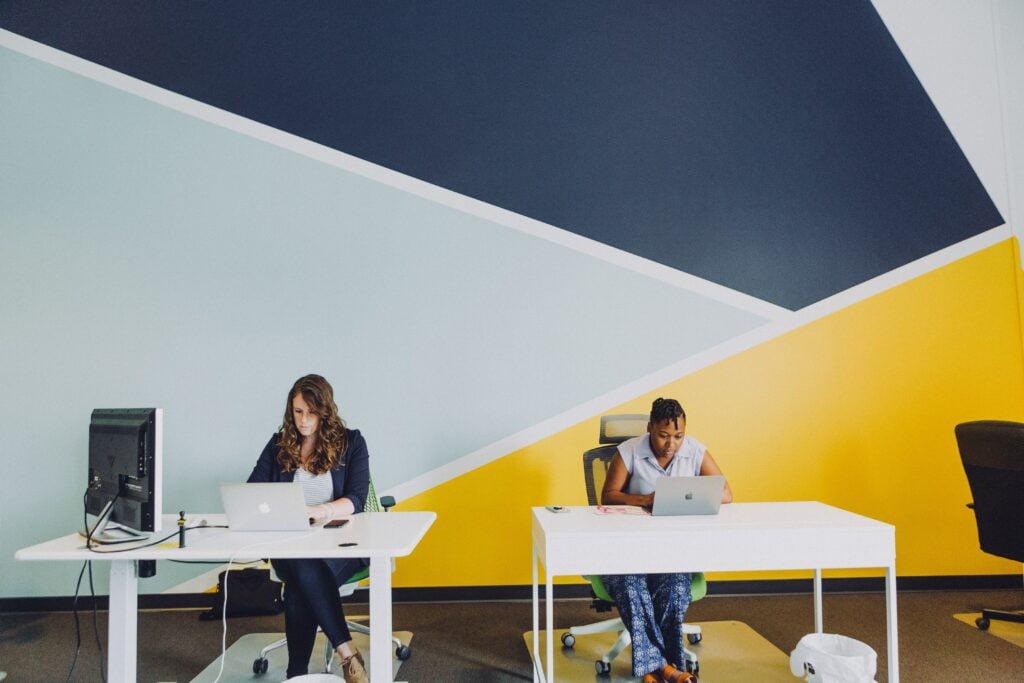
In the ever-evolving realm of contemporary work environments, businesses are increasingly turning to innovative strategies to enhance collaboration, flexibility, and operational efficiency. One such strategy gaining prominence is the adoption of a desk sharing policy. This transformative approach challenges the traditional concept of assigned workstations, ushering in a new era of dynamic and adaptable office spaces. So, let’s delve into the intricacies of desk sharing policies, exploring what they entail, why they are beneficial, and how they contribute to a more agile and collaborative workplace.
The desk sharing policy involves providing employees with flexible access to workspaces rather than assigning fixed desks to individuals. This dynamic approach allows team members to choose where they work based on the nature of their tasks, preferences, or colleagues’ choices, fostering a culture of adaptability and collaboration.
Hot desking and desk booking are two main components of creating the perfect policy. They can be used both or separately, depending on what kind of workplace you are seeking to create.
This practise involves employees selecting from a pool of unassigned desk space on a first-come, first-served basis. Hot desking promotes a dynamic work environment and encourages employees to interact with different colleagues regularly.
Advanced technologies facilitate the implementation of a sharing policy through the desk booking system (sometimes called office hoteling software). This kind of system enables employees to reserve workspaces in advance, ensuring they have a dedicated spot when needed.
One of the primary advantages of the policy is optimal office space utilisation. In a traditional setup, a significant portion of the workspace may remain unused because not all employees are at the office daily – some have personal days, some get sick or take a vacation. Desk sharing allows organisations to maximise their office real estate by ensuring that desks are occupied efficiently. This not only reduces the physical footprint of the office but also translates into potential cost savings.
Desk sharing promotes flexibility, enabling employees to choose where they work based on the nature of their tasks. This flexibility empowers individuals to find the environment that best suits their working style, whether it be a quiet corner for focused tasks or a collaborative working space for team projects. This adaptability can lead to increased job satisfaction and, consequently, higher productivity levels.
The shift towards desk sharing policy encourages spontaneous interactions and collaboration among team members. Employees from different departments or teams may find themselves sitting closely in a shared workspace, fostering impromptu discussions and idea-sharing. This increased collaboration can lead to improved communication, a stronger sense of camaraderie, and, ultimately, more innovative solutions to challenges.
Advanced technology solutions often complement desk sharing policies. Tools like desk booking apps or other desk management systems, IoT sensors, and workplace analytics enable employees to reserve workspaces, locate colleagues, and provide valuable insights into space utilisation patterns. This integration not only streamlines the desk sharing process but also helps organisations make data-driven decisions to optimise their office layout further.
The policy contributes to a more inclusive and accommodating workplace. Employees have the freedom to choose an environment that aligns with their mood, tasks, or personal preferences, promoting a healthier work-life balance. Additionally, the variety of work settings accommodated by desk sharing can reduce monotony and contribute to a more engaging work experience.
Organisations can contribute to a more sustainable future by embracing a sharing policy. Reduced office space requirements mean lower energy consumption, less waste, and a smaller carbon footprint. Furthermore, as employees enjoy the flexibility to work remotely more often, the decrease in daily commuting further contributes to a positive environmental effect by curbing travel-related carbon emissions. This kind of sustainable workspace practise aligns harmoniously with the values of employees and clients, amplifying the company’s reputation as a conscientious corporate citizen dedicated to making a tangible difference in the world.
Successful adoption of a policy requires effective communication and training programs. Employees should be informed about the new approach and provided with the necessary tools and resources to navigate the changes seamlessly.
Striking a balance between individual autonomy and team collaboration is crucial. Organisations should design spaces that accommodate both focused, individual work and collaborative activities.
A robust technology infrastructure is essential for the smooth functioning of the desk sharing policy. This includes reliable reservation systems, connectivity solutions, and workplace insights tools to monitor and improve the utilisation of shared spaces.
Desk sharing policy represents a fundamental shift in the way organisations approach workspace utilisation. The multifaceted benefits extend beyond cost savings, touching upon critical aspects of modern work culture. By fostering flexibility, collaboration, and employee well-being, companies embracing policy position themselves at the forefront of workplace innovation, creating environments that not only adapt to the workforce’s needs but actively contribute to a culture of innovation and collaboration.
Learn more about the desk sharing pros and cons.
Subscribe to the monthly newsletter!
By clicking the “Subscribe” button above, you agree to the Terms & Conditions and Privacy Policy
2014 – 2025 Proudly designed and made in Lithuania